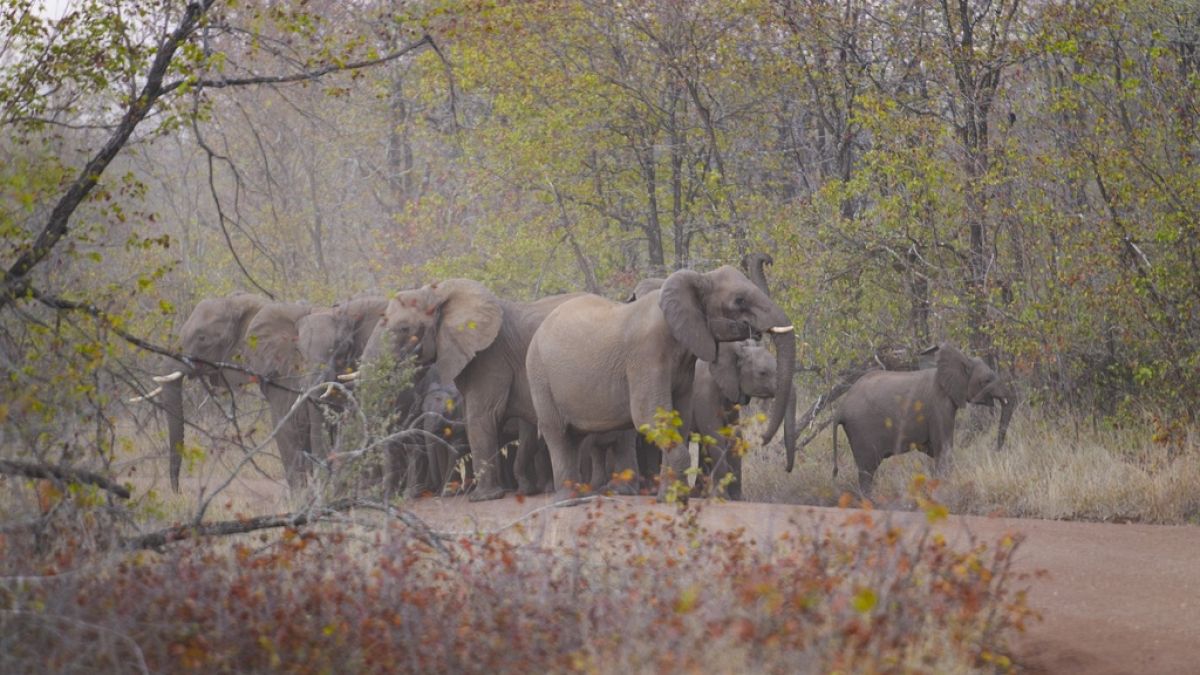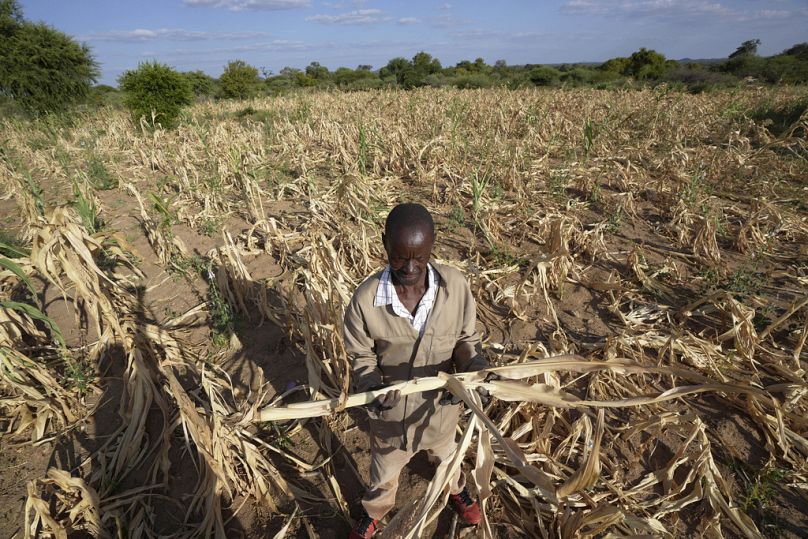Zimbabwe will allow the culling of 200 elephant for the first time since 1988 amid concerns about food shortages after an unprecedented drought.
Zimbabwe is to controversially allow the culling of 200 elephant for the first time since 1988 amid concerns about food shortages amid a severe drought.
The southern African country has "more elephants than it needs," Zimbabwe's environment minister told a parliamentary hearing last week.
According to local media reports, hunters have been ordered to kill 200 animals.
The elephant hunt will take place in areas where "there have been clashes with humans," including Hwange, home to Zimbabwe's largest game reserve, the head of the Parks and Wildlife Authority, Fulton Mangwanya, said.
Citing the experience of neighbouring Namibia, which has previously culled elephants for human consumption, officials plan to to dry the meat, pack it and deliver it to communities that are food insufficient.
The World Food Programme says Zimbabwe is enduring its worst drought in over 40 years. It means there is little to eat in many areas as crops wither away and harvests are poor.
A number of experts and animal rights activists believe the elephant cull could negatively affect the country's image and discourage tourists from visiting Zimbabwe.
Zimbabwe is home to about 100,000 elephants, the second largest population in the world after Botswana.
The World Wildlife Fund estimates that there are only about 415,000 elephants left on the continent, down from three to five million at the start of the 20th century. Asian and African elephants are considered endangered, with the exception of populations in South Africa, Botswana, Namibia and Zimbabwe, where they are classified as "vulnerable."













